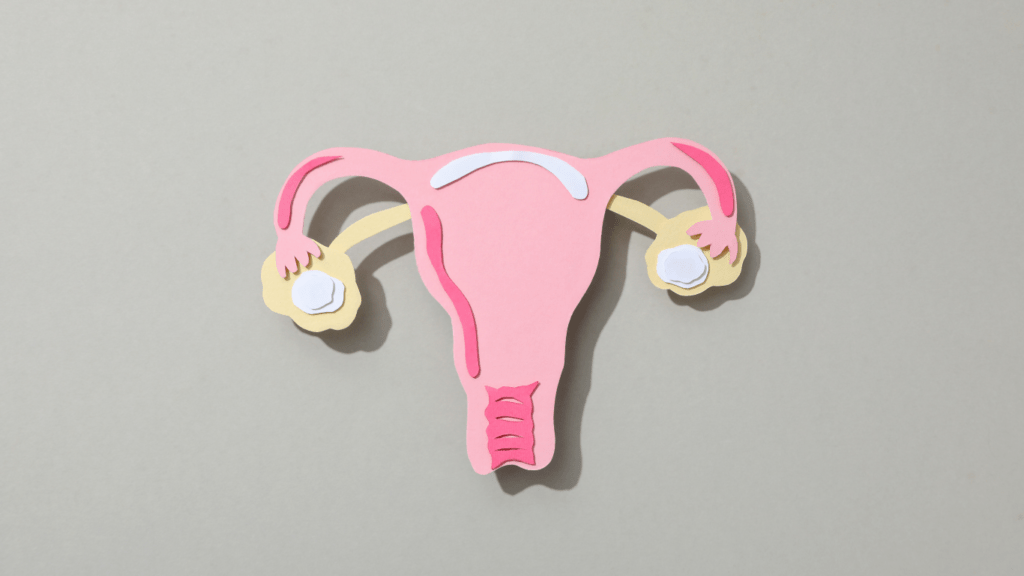Becoming a mom is one of the most beautiful experiences, but it also comes with a whirlwind of changes, especially hormonal shifts. After childbirth, your body undergoes significant transformations that can affect everything from your mood to your physical health.
Understanding these hormonal changes is crucial for navigating the postpartum period. I’ve been there, and I know how overwhelming it can feel. It’s not just about the joy of a new baby; it’s also about managing the emotional and physical challenges that arise.
By learning what to expect, you can better equip yourself to embrace this new chapter with confidence and resilience. Let’s dive into the essential hormonal changes every mom should know about after giving birth.
Overview of Hormonal Changes
Hormonal changes following childbirth are significant and affect both physical and emotional states. These changes primarily stem from fluctuations in key hormones, including estrogen, progesterone, and oxytocin.
- Estrogen: Estrogen levels plummet after delivery. High levels during pregnancy prepare the body for childbirth, but rapid declines can lead to mood swings and emotional instability.
- Progesterone: Progesterone also decreases sharply post-delivery. This hormone helps maintain pregnancy, and its drop can contribute to feelings of anxiety or sadness.
- Oxytocin: Oxytocin, often referred to as the “love hormone,” surges during and after childbirth. It promotes bonding with the baby and stimulates milk production. Higher oxytocin levels can enhance feelings of warmth and attachment.
- Prolactin: Prolactin increases to support breastfeeding. This hormone controls milk supply, and elevated levels can sometimes lead to fatigue as the body adjusts to new demands.
- Cortisol: Cortisol, the stress hormone, may rise due to changes in sleep patterns and new responsibilities. Elevated cortisol can affect mood and energy levels.
Understanding these hormonal shifts can help me recognize the emotional and physical challenges post-delivery. Adapting to these changes is crucial for overall well-being in the postpartum period.
Common Hormonal Changes After Childbirth
New mothers experience significant hormonal changes post-delivery. Understanding these fluctuations is essential for navigating the postpartum period effectively.
Estrogen Levels
Estrogen levels drop sharply after childbirth. This decline can lead to emotional challenges such as mood swings, anxiety, and feelings of sadness. With estrogen playing a crucial role in regulating mood, its reduction can cause feelings of instability. Monitoring these symptoms helps in addressing them promptly and seeking support when necessary.
Progesterone Levels
Progesterone levels also decrease after delivery. This hormone’s drop can contribute to increased emotional sensitivity and discomfort. As progesterone supports pregnancy maintenance, its absence might cause physical adjustments in the body, including changes in libido and energy levels.
Recognizing these shifts aids in managing expectations and self-care during the postpartum phase.
Physical and Emotional Effects
Hormonal changes after childbirth can lead to both emotional and physical effects that new mothers need to understand. Recognizing these impacts is essential in managing the postpartum experience effectively.
Postpartum Depression
Postpartum Depression (PPD) affects around 15% of new mothers. Symptoms include persistent sadness, anxiety, and difficulty bonding with the baby. The drop in estrogen and progesterone contributes to these feelings, highlighting the need for awareness and support.
Monitoring emotional health closely is crucial. Seeking help from healthcare providers ensures mothers receive the necessary care and guidance.
Physical Recovery
Physical recovery involves various adjustments due to hormonal fluctuations. Decreased estrogen may cause vaginal dryness and discomfort. Changes in progesterone levels can influence energy and libido, disrupting routine activities.
Fatigue often results from new responsibilities and sleep disturbances. Proper nutrition, hydration, and rest promote healing. Engaging in gentle exercise, like walking, aids recovery and boosts mood. Understanding these physical changes helps mothers adapt and prioritize self-care during this transformative period.
Coping Strategies for New Moms
New mothers face numerous challenges following childbirth due to hormonal changes. Implementing effective coping strategies aids in navigating this transitional period.
Nutrition and Diet
Nutrition plays a crucial role in postpartum recovery. Balanced meals rich in vitamins and minerals can stabilize mood and energy levels. I focus on incorporating:
- Whole grains: Foods like brown rice and quinoa provide sustained energy.
- Lean proteins: Chicken, fish, and legumes support muscle recovery and overall health.
- Healthy fats: Avocados, nuts, and olive oil contribute to brain health and hormone production.
- Fruits and vegetables: Provide essential micronutrients and help combat fatigue.
Staying hydrated is equally important; I aim for at least 8-10 cups of water daily. Opting for nutritious snacks can maintain energy throughout the day. Consuming options like Greek yogurt, nuts, and fresh fruit ensures I get necessary nutrients while managing hunger.
Support Systems
Establishing a strong support system enhances emotional and physical well-being. I prioritize reaching out to:
- Family and friends: Their assistance can relieve stress, whether through meal preparation or offering childcare.
- Support groups: Connecting with other new moms fosters shared experiences and understanding.
I also consider professional help when necessary. Consulting with a healthcare provider for mental health concerns ensures I receive proper care and guidance. Engaging in community resources, such as parenting classes, helps build skills and confidence in my new role.
When to Seek Help
Recognizing when to seek help during the postpartum period is crucial for a new mother’s well-being. Awareness of specific signs and symptoms can lead to timely support and care.
Signs of Hormonal Imbalance
Signs of hormonal imbalance after childbirth can manifest in various ways. These include:
- Mood Swings: Frequent emotional changes, including sudden sadness or irritability, may indicate hormonal fluctuations.
- Persistent Sadness: Ongoing feelings of sadness or despair that last more than a couple of weeks can signal postpartum depression (PPD).
- Anxiety: Increased anxiety or overwhelming feelings about motherhood may suggest hormonal issues needing attention.
- Sleep Disturbances: Difficulty sleeping, despite feeling fatigued, can contribute to hormonal imbalances and affect overall mood.
- Fatigue: Excessive tiredness that doesn’t improve with rest may indicate hormonal disruptions affecting energy levels.
- Changes in Libido: Notable decreases in sexual desire can result from hormonal shifts, impacting the mother’s sense of intimacy.
- Physical Symptoms: Issues such as vaginal dryness, headaches, or persistent nausea might arise from hormonal changes.
If experiencing any of these signs, seeking help from a healthcare provider can provide necessary support and intervention. Professional guidance can assist in managing these challenging symptoms effectively.


 Reginalita Leeons played a vital role in building the supportive environment that Motherhood Tales Pro is known for. With a strong background in wellness and outreach, she guided the development of resources that address the holistic needs of mothers. Her compassionate input ensured that every offering—from blog posts to wellness tools—felt thoughtful, inclusive, and empowering.
Reginalita Leeons played a vital role in building the supportive environment that Motherhood Tales Pro is known for. With a strong background in wellness and outreach, she guided the development of resources that address the holistic needs of mothers. Her compassionate input ensured that every offering—from blog posts to wellness tools—felt thoughtful, inclusive, and empowering.